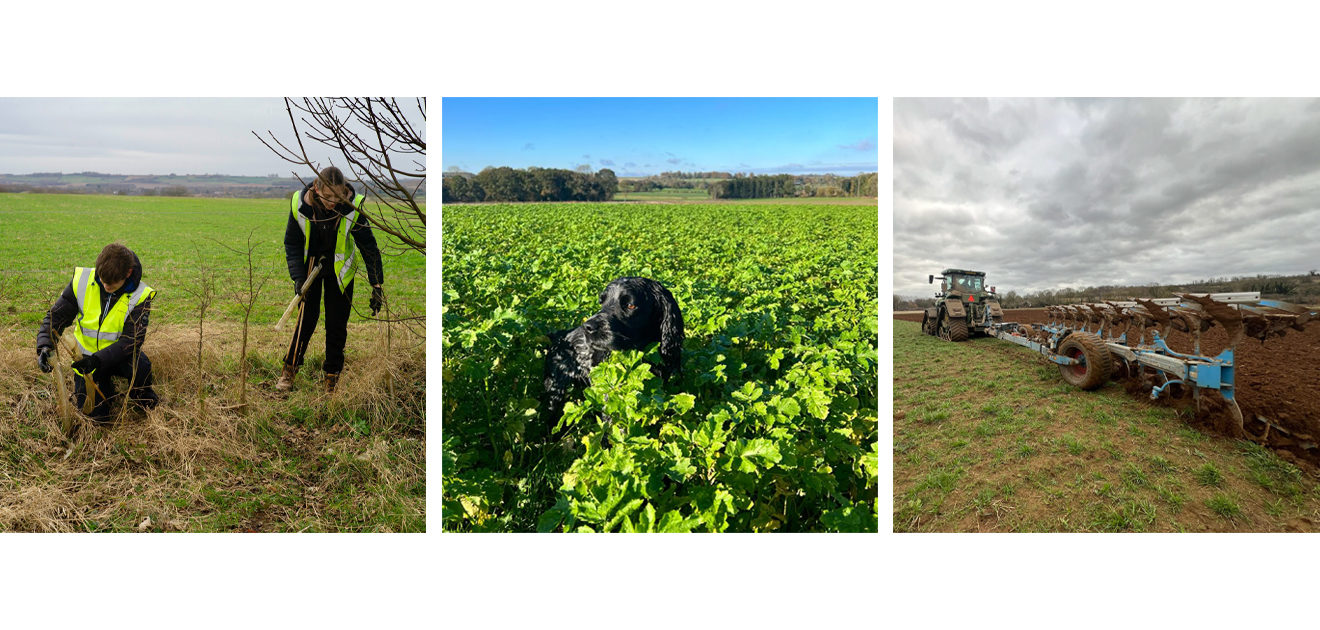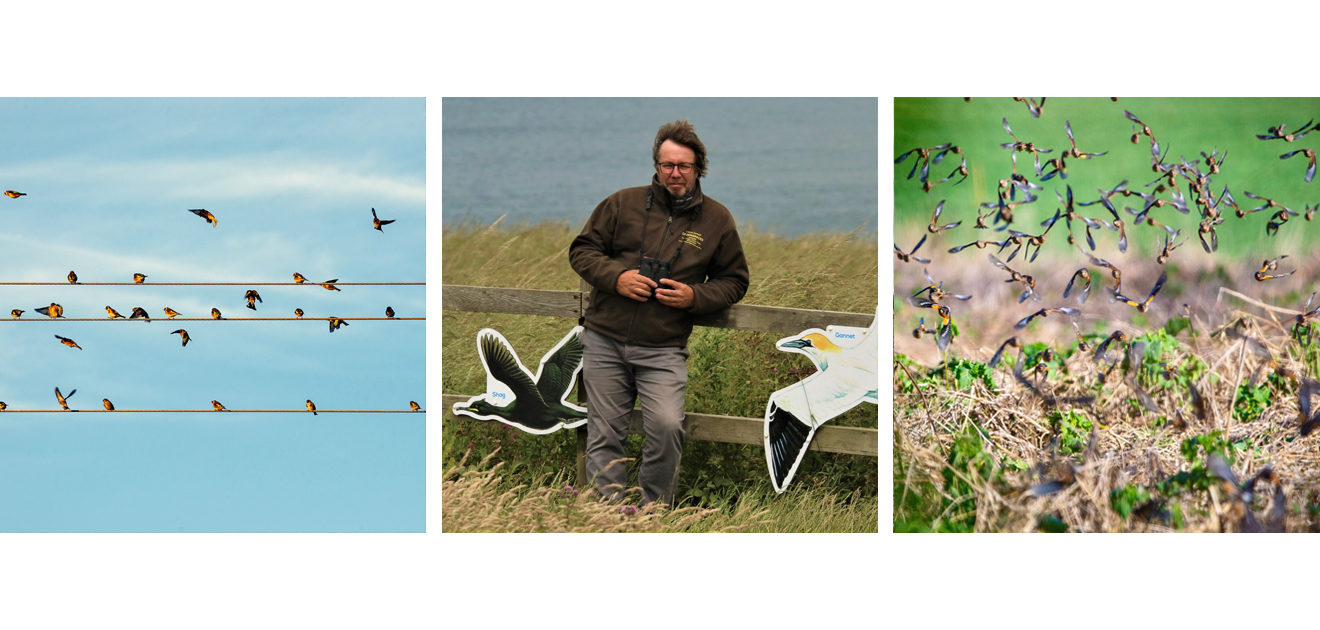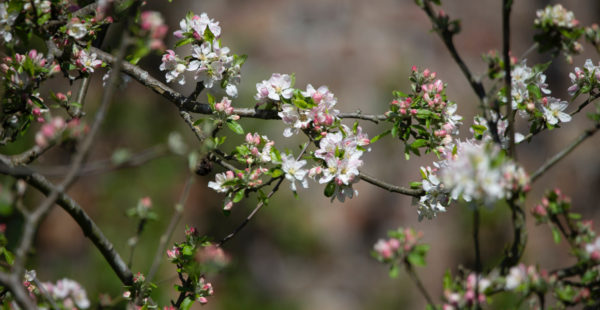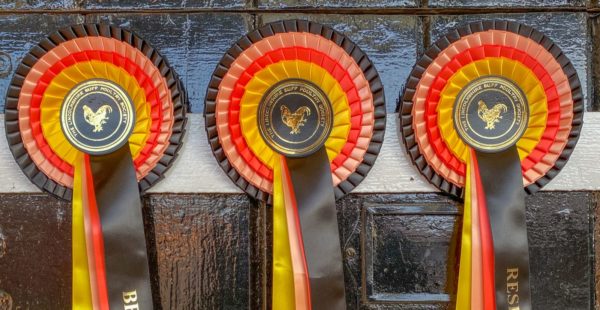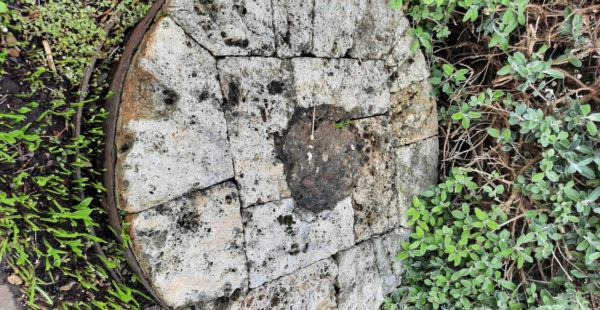A Week on the Estate: Rolled Mustard, Wild Wonders & Steve’s Expertise
Wet sleet is drenching the landscape in icy slush right now, but spring is drawing near and the days are discernibly lengthening. Our programme of Snowdrop Walks gets underway this weekend and we’re thinking ahead to the Lincolnshire Wolds Outdoor Festival in May. There’s plenty going on and much to look forward to despite the grotty weather.
The Saturday club were pictured out and about in last weekend’s raw weather and they certainly earned their lunches. There’s always a bit of litter-picking to crack on with. On a cheerier note, they also did a spot of de-spiralling; some of our young hedging plants are getting mature enough that the protective spirals can be removed and re-used.
Out on the land, Biscuit the cocker spaniel was pictured last autumn enjoying a romp in the organic mustard at Driby. The mustard was sown in September and rolled by our contractor Richard Clark a few weeks ago; he started at 4am to make the most of freezing weather so (woolly) hats off to him!
Cover crops like this are a key part of our sustainable, nature-friendly approach to farming. They protect and nourish our soil, giving us a healthy soil biome and strong root systems that resist both wind erosion in dry summers and wet run-off in winters like this one.
Rolling a cover crop prevents seed production and germination. It’s best done in a cold snap when stems break more easily. The herbage is flattened down to form a mulch layer, enriching the land without agrichemicals. It’s a valuable addition to our organic approach, nourishing the soil and the worms.
The hard work continues, whatever the weather. This week, we started ploughing ahead of our organic vining pea crop. Fingers crossed for a good growing season.
Snowdrop Walks are back by popular demand and there are still places left. Pete Staves, Damian Furlong and Farmer Mike will be giving guests an exclusive glimpse of South Ormsby Estate at its most enchanting. You’ll see secluded copses, landscaped parkland and the wild and rarely accessed Lime Tree Avenue with its chalk stream and wide drifts of snowdrops and aconites.
As if that weren’t enough, we’ll be offering refreshments and a chance to taste our gins. The Snowdrop Walks will run at 10am on Sunday 11th, Wednesday 14th and Sunday 18th February. The tours costs £12 per person (under-16s go free) but Friends of SOE get £5 off. It’s free to become a FoSOE and you can sign up and book your tour HERE.
The Snowdrop Walk is a two-mile circular amble over uneven terrain. Children are welcome. Dress for walking off-road in soggy winter weather. Apologies to dog-lovers but this walk is not suitable for pooches; there will be dog-friendly options on our spring programme.

